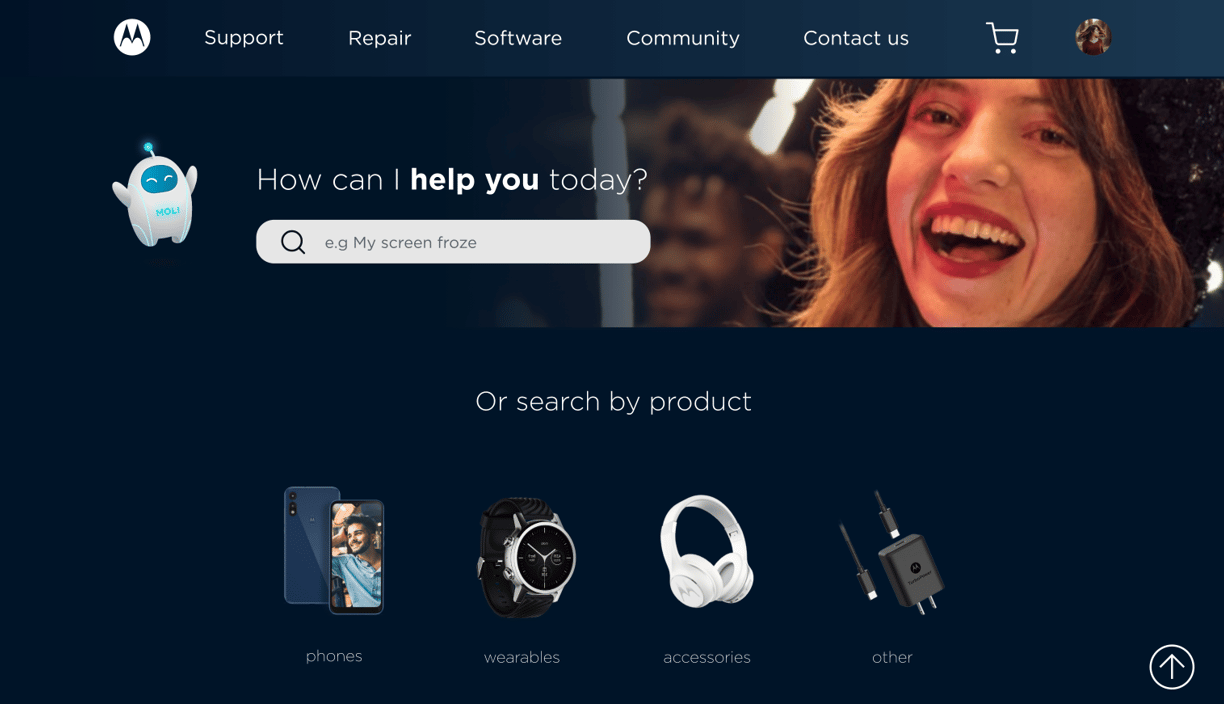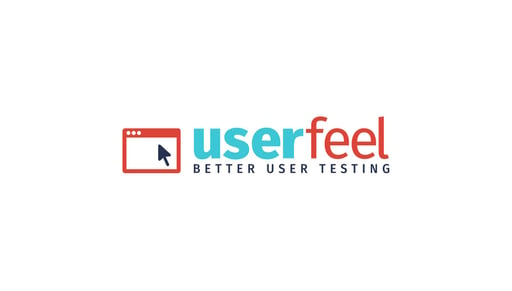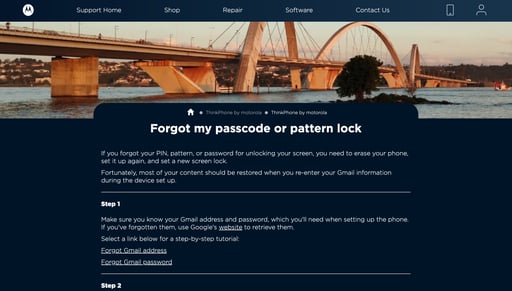The Project
I took charge of comprehensive research & analysis, wireframing, redesign, and the continuous oversight of page development.
That was my first big project for the United States, so Corebiz had really high hopes for what I'd do. Thankfully, any initial apprehension quickly dissolved within the first few days of the Product Discovery phase.
No significant project is done alone, and fortunately, I had an excellent team to help me succeed in this project.
Daniela Sobral was the project's Product Owner and did a magnificent job in filtering what should or should not be a priority, as the project was enormous. Patti Derow, who is the Global Digital eServices Manager at Motorola, was simply outstanding. Working with her was like working with someone I've known for years.
I also need to praise the brilliance of the entire team of managers, developers, and the support from Motorola's helpdesk.


Research & Analysis
The success of the project for Motorola's support pages was achieved through an in-depth research and analysis approach, focused on understanding user needs and creating an intuitive and effective experience. We conducted extensive research with various American users using User Feel assisted tests, which allowed us to directly observe how users interacted with both the old support site and the new design we were proposing.
The User Testing process involved observing real users as they completed specific tasks on the site, providing us with valuable insights into their challenges, expectations, and behaviors. This helped us identify areas for improvement in navigation, information hierarchy, and overall usability. Additionally, we conducted benchmarking against other brands' support sites and conducted interviews to deepen our understanding of users' frustrations and desires.
The results from these studies were crucial for creating hundreds of wireframes and defining solutions that truly addressed user needs while maintaining consistency with Motorola's brand identity. This iterative process of testing and refinement was essential to improve the user experience and ensure that the new design was more accessible, efficient, and intuitive.
Moreover, the Motorola team was an essential partner throughout the development of the project, contributing with detailed information, continuous feedback, and the necessary resources to ensure all improvements were successfully implemented. The collaborative work between our UX team and Motorola was key to the success of this project.





